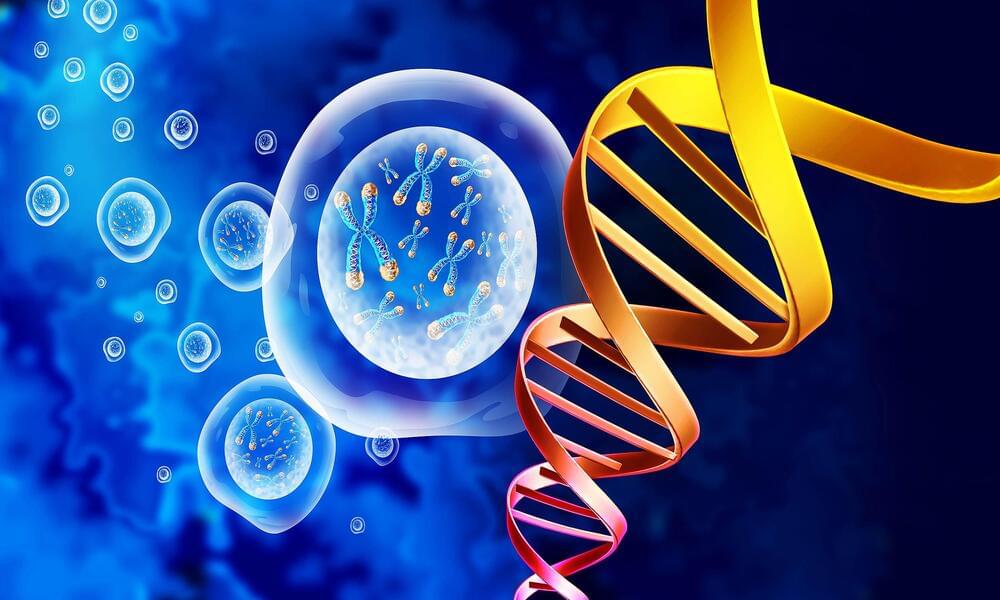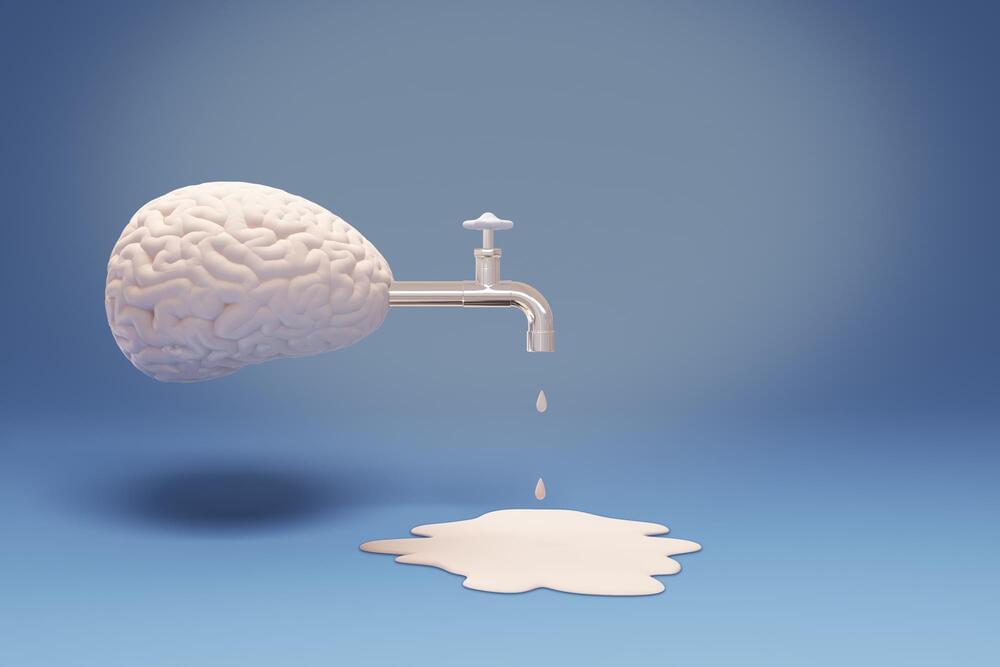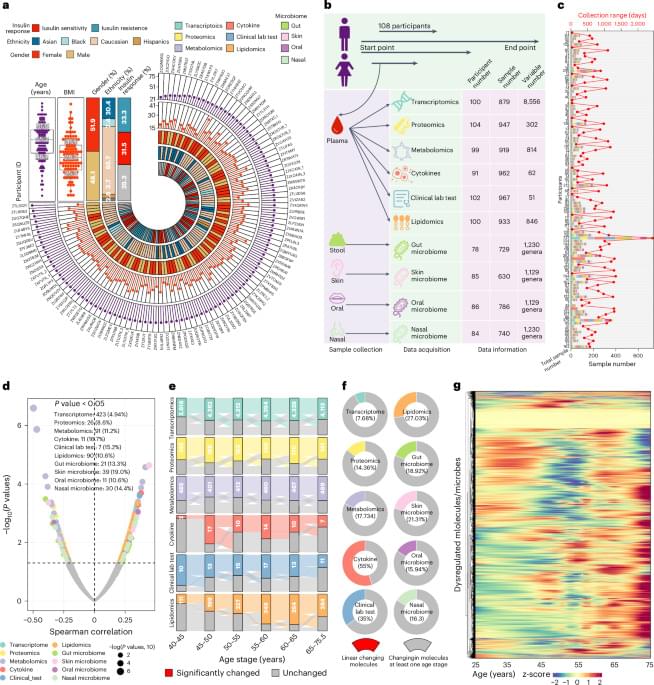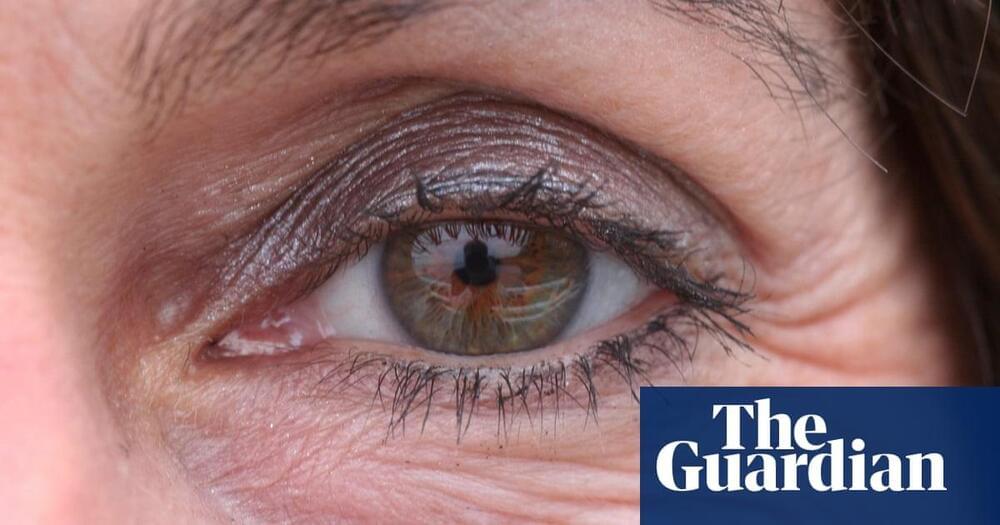The Longevity Biotech Fellowship is a non-profit community for people to come together to build, join, or invest in revolutionary longevity biotechnology projects. The Fellowship was founded in 2022 by Nathan Cheng, Mark Hamalainen, and Jun Axup as part of LessDeath Inc— an IRS-approved 501©3 non-profit based in California.
Category: life extension – Page 130
Diet Composition That Corresponds To A 17.6y Younger Biological Age (Blood Test #5 In 2024)
Join us on Patreon! https://www.patreon.com/MichaelLustgartenPhDDiscount Links/Affiliates: Blood testing (where I get my labs): https://www.ultalabtests.com/…
Natasha Vita-More — What Makes Personal Identity Continue?
If you enjoy our content, make a tax-deductible donation of any amount to help us keep videos like this one free from paywalls: https://shorturl.at/JN4Ty.
Personal identity seems so strong. We have the same sense of ourselves throughout our lives, even though everything about our physical bodies and brains is changing constantly. What then causes the continuity of personal identity? Where does transhumanism fit in? Some say personal identity is an illusion, but that seems like cheating. Others credit a nonphysical soul. That seems as though it’s cheating too.
Show your support of the show with Closer To Truth merch like T-shirts, hoodies, and more: https://bit.ly/3P2ogje.
Natasha Vita-More is a faculty member in design, media arts, and theory at the University of Advancing Technology. She is a strategic designer in the area of human enhancement and life extension. Her interests are located within the ethical uses of science and technology and socio-political implications of revolutionary advances impacting humanity’s future.
Follow Closer To Truth on X (Twitter) for announcements, updates, and more: https://x.com/CloserToTruth.
Closer To Truth, hosted by Robert Lawrence Kuhn and directed by Peter Getzels, presents the world’s greatest thinkers exploring humanity’s deepest questions. Discover fundamental issues of existence. Engage new and diverse ways of thinking. Appreciate intense debates. Share your own opinions. Seek your own answers.
17.6y Younger Biological Age: Supplements (Blood Test #5 In 2024)
Join us on Patreon! https://www.patreon.com/MichaelLustgartenPhDDiscount Links/Affiliates: Blood testing (where I get my labs): https://www.ultalabtests.com/…

Discovery: Human bodies begin breaking down at a very precise age
It’s no revelation that the human body undergoes natural wear and tear as we age. But you might be surprised to discover that this process isn’t as gradual as we’d presumed.
A recent study reveals some remarkable truths about aging, specifically when and how our bodies start to ‘break down’
The man at the helm of the study is Michael Snyder. Chair of genetics at Stanford School of Medicine and recognized for his exceptional contribution to the field, his team’s research provides some fascinating insights into the specifics of our biological aging process.

Longevity Breakthrough: New Treatment Extends Lifespan and Enhances Physical Function
Researchers found that removing certain inflammation-causing cells from mice every month, starting in their middle age, not only extended their lifespans but also improved their heart health and overall physical function throughout their lives. This method shows promise for extending the period of good health as mice age, potentially pointing to new aging treatments for humans.
Everyone wants to live to a ripe old age, but no one wants to be decrepit. Now, University of Connecticut researchers have demonstrated a treatment that could lengthen life—and vigor—up to the very end.
Even as human lifespans have lengthened over the past century, most people in old age suffer a serious health decline in the last decade of life. Chronic illnesses such as cancer, diabetes, or cardiovascular disease may begin, followed by frailty. Many interventions can prolong life, but not necessarily good health. And nobody wants to spend the last years of an extra-long life in decrepitude.

Aging dominated by two periods of rapid change, research finds
Significant change can be stressful – divorce, death and moving all make the list – but when it comes to aging, a new paper identifies two flashpoints of enormous biological change. The recent study, by researchers at Stanford Medicine, uncovered evidence that human aging does not occur at a constant, gradual pace – but rather is marked by two significant bursts of molecular change. These bursts, observed in people around the ages of 44 and 60, suggest that aging may be driven by more complex biological processes than previously thought. The findings, published in Nature Aging, are based on comprehensive multi-omics profiling of 108 participants, providing a detailed look at how the human body changes during these key periods of life [1].
Longevity. Technology: The research sheds light on the nonlinear nature of aging, challenging the traditional view that aging is a steady, continuous process. By understanding why and how these bursts of aging occur, scientists may be able to uncover more about the mechanisms of aging and leverage that knowledge to improve both lifespan and healthspan. The findings also highlight the ever-evolving nature of aging research, which continues to refine our understanding of how and why we age.
The Stanford Medicine team, led by Professor Michael Snyder, PhD, analyzed a vast array of molecular data from participants aged between 25 and 75 years. Over a period spanning several years, the researchers collected blood and other biological samples from the participants, tracking more than 135,000 different molecules and microorganisms. The data set included a total of nearly 250 billion distinct data points, making this one of the most comprehensive studies of its kind [1].

Common drug restores youthful function to clean up aging brains
First described by Nedergaard and her colleagues in 2012, the glymphatic system is the brain’s unique waste removal process that uses cerebrospinal fluid (CSF) to wash away excess proteins generated by energy hungry neurons and other cells in the brain during normal activity.
A drug used to induce labor in pregnant women has been shown to reactivate tiny waste-clearing pumps in the brains of old mice. The finding could hold promise as a new way to fight Alzheimer’s and Parkinson’s diseases and overall cognitive decline.
When our brains are working properly, there is an excess of proteins that build up from the energy intensive processes that take place between our neurons. Those proteins need to be removed in order for the brain to continue to operate properly. When they aren’t, they can gunk up the works, leading to the beta amyloid and tau protein tangles that are a hallmark of Alzheimer’s disease or the build up of alpha-synuclein that accompanies Parkinson’s.
In 2012 Danish neuroscientist, Maiken Nedergaard first described the system that uses cerebrospinal fluid (CSF) to remove waste from the brain and termed it the glymphatic system. Now, Nedergaard and her colleagues have looked deeper into the glymphatic system, focusing on lymph vessels called lymphangions. These are a series of tiny pumps in the neck that are responsible for moving dirty CSF out of the brain and into the lymph system where it ultimately reaches the kidneys to be processed.

Nonlinear dynamics of multi-omics profiles during human aging
Understanding the molecular changes underlying aging is important for developing biomarkers and healthy aging interventions. In this study, the authors used comprehensive multi-omics data to reveal nonlinear molecular profiles across chronological ages, highlighting two substantial variations observed around ages 40 and 60, which are linked to increased disease risks.
